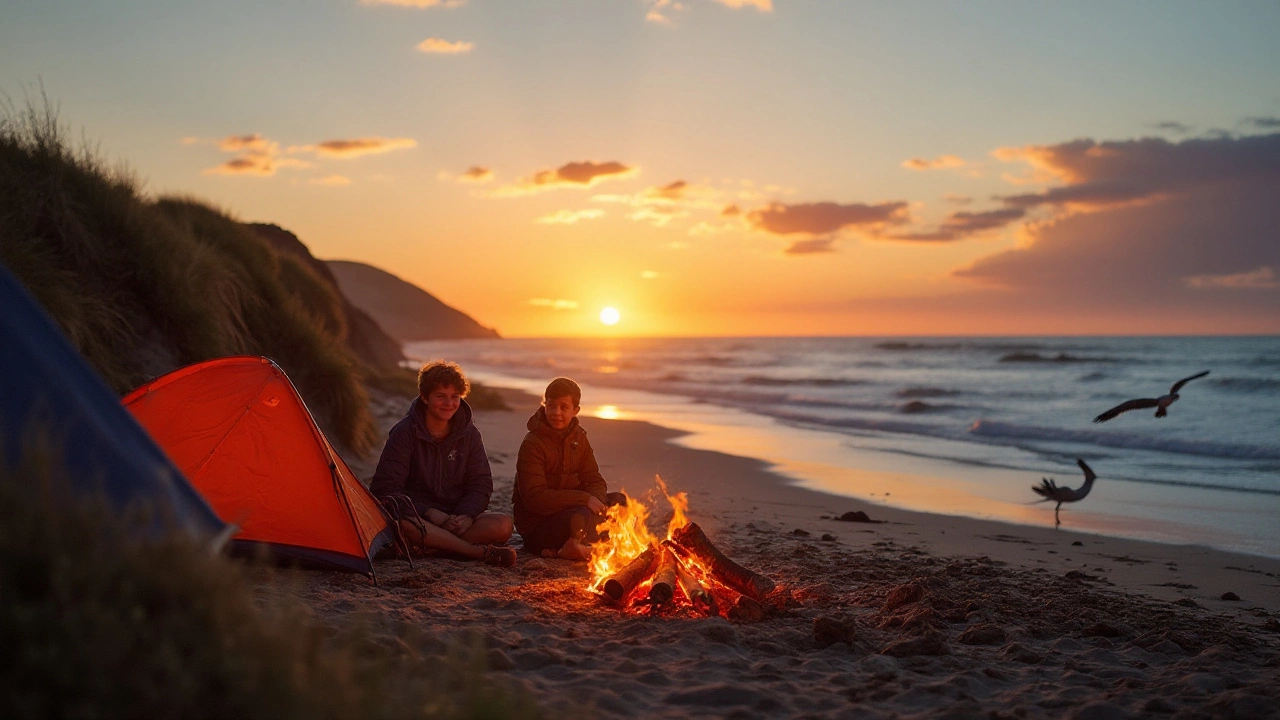Public Beaches: How to Find, Access & Enjoy Them in Your Motorhome
Nothing beats waking up to the sound of waves while your motorhome sits just a few steps from the sand. If you’re wondering how to make that happen without breaking any rules, you’re in the right place. We’ll walk through the easiest ways to locate public beaches, the basics of parking a motorhome on the coast, and the must‑know rules that keep you on the right side of the law.
Getting to Public Beaches with a Motorhome
First off, map out beaches that actually allow motorhome access. Most council‑run beaches have a designated car park nearby, and many of those spaces are large enough for a motorhome. Use apps like Google Maps or dedicated motorhome parking sites, then type in "public beach" plus the region you’re headed to. When you spot a promising spot, check the parking signs – look for symbols that show “motorhome” or a number indicating length limits.
Plan your arrival time wisely. Early mornings or late evenings are usually quieter, and you’ll avoid the peak‑hour traffic that can turn a simple drive into a nightmare. If the beach has a paid car park, bring change or a contactless payment method; most places accept card, but some still rely on cash. A quick tip: keep a photo of your motorhome’s registration handy – some coastal authorities ask for it when you enter a restricted zone.
Don’t forget the “stay‑limit” signs. Many popular beaches let you park for a maximum of two hours, especially in summer. If you need more time, look for a nearby campsite that offers direct beach access. That way you get the best of both worlds – a legal parking spot and a proper place to set up camp.
Beach Rules You Should Know
Public beaches in the UK are generally open to everyone, but there are a few non‑negotiable rules. No overnight camping on the beach unless the local bylaw explicitly says it’s allowed. If you’re only parking to take a dip or a walk, a few hours is fine; staying the night could earn you a fine or a stern warning from council officers.
Fire bans are common during dry spells. Even if there’s a designated fire pit, check the latest county fire notice before lighting anything. Most beaches have litter bins, but they’re often emptied only once a day, so pack a small bag and take your trash home if the bin looks full.
Respect wildlife. Seashore birds, crabs, and dunes are protected, so avoid trampling on nesting areas. If you see signs warning about protected zones, steer clear – the penalty for disturbing wildlife can be steep.
Lastly, keep noise levels low. A motorhome’s slide‑out can be noisy, and blasting music might spoil the peaceful vibe. A friendly wave or a quick chat with other beach‑goers can go a long way in building a good reputation for motorhome travellers on the coast.
By following these simple steps – scouting the right spots, obeying parking limits, and respecting local rules – you’ll enjoy public beaches without any hassle. Pack your sunscreen, your favourite playlist, and hit the road. The UK coast is waiting, and your motorhome is the perfect ticket to explore it all.
Wild Camping on UK Public Beaches: What You Need to Know
Exploring the allure of wild camping on UK public beaches offers a unique connection with nature, but it's important to understand the local laws and environmental considerations. While the idea of sleeping under the stars along the coast seems idyllic, campers must navigate regulations that vary by region. From understanding beach access to minimizing human impact, this article provides essential tips for a responsible and enjoyable beach camping experience.
